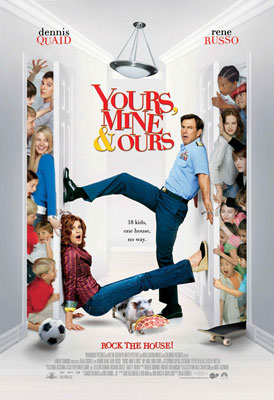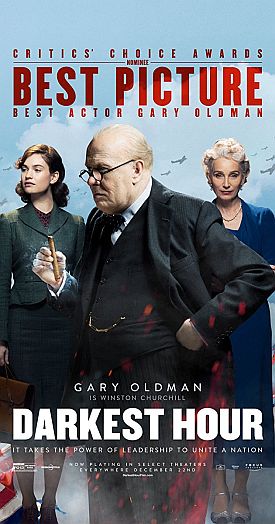I’m Not Rappaport
I’m Not
Rappaport, written and directed by Herb Gardner from his stage play, takes
its title from the old vaudeville joke. Comic walks across the stage as it were
down a street and encounters straight man with surprise:
“Rappaport! What happened to
you?” he says.
“You used to be a short, fat man and
now you’re a tall, skinny
man.”
“I’m
not Rappaport,” says the straight
man.
“Rappaport,”
persists the comic, “how come you used
to be a blue-eyed blond with a moustache and now
you’re a dark, brown-eyed man with a
beard?”
“I’m
not Rappaport,” says the straight
man.
“Rappaport!”
says the comic. “You used to be so
well dressed and clean and now you’re
dressed in filthy old clothes.”
“I’m
not Rappaport,” says the straight
man.
“So you changed your name
too!” says the comic.
A subtle critic would divine from this that Herb Gardner is the kind of guy
who is able to find endless amusement in the whimsical denial of identity, and
sure enough, Walter Matthau’s
character—whom we only learn at the end of the film is called Nat Moyer
and lived an uneventful life as a waiter in Grenwich village—goes through
a seemingly endless procession of alternative identities, most of them for the
amusement and exasperation of a benchmate in central park, a supposedly 81 year
old building superintendent named Midge (Ossie Davis).
“I was one person for 80 something
years,” he says.
“Why not be a hundred for the next
five?”
What is supposed to make this frothy stuff sustain a whole drama is its
political dimension. The film begins with a scene from the unionization of the
ladies garment workers in 1909 at a meeting addressed by the fiery Clara Lemlich
(Elina Löwensohn)—a meeting at which the 5 year old Nat sat on his
father’s shoulders and watched
entranced, holding up his hand with the others to take the Hebrew Oath
( “May this hand wither. .
.” ). Ever since, he has been a radical
left-wing sympathizer, though most of his struggles on behalf of the
people’s cause seem to have been
either imaginary or just whimsical gestures—as is the one we are shown at
the beginning of the film where he goes into a supermarket and pretends to be
from the city’s consumer protection
agency. He starts marking down all the prices on the meat as shoppers swarm
around him, asking for their discounts, until the management checks him out and
chucks him out.
This is actually a perfect representation of New York radicalism. It makes
the case, frankly if not well, for what most of the New York left would be too
embarrassed to admit: that the leftist idealism represented on the soundtrack
here by repeated playings of the Communist
“Internationale”
has long since become (if, indeed, it was ever anything more than) a sentimental
gesture. Gardner finds nobility and a kind of pathetic grandeur in
Nat’s futile gestures. The two old
men, Nat and Midge, smoke a joint as they wander the park and reminisce about
their now defunct love-lives, for which we are meant to love them. Gardner and
those who admire him think it natural to celebrate (rather than deplore) their
regression to adolescence—which is natural, since gestural politics, like
grass and sex, essentially is adolescent.
It is hard to make this grotesque vision of venerable age look admirable, but
Gardner has a go at it. When a sanctimonious yuppie called Danforth (Boyd
Gaines), a professor of
“communications”
and chairman of the tenants’
association at the building where Midge works tries to sack him, Nat
impersonates a lawyer and tries to scare him with legal mumbo-jumbo about what
the union will be able to do to his plans to take the building co-op. At first
this seems to work, and the credulous Danforth promises to keep Midge in his
job, minding the building’s ancient
boiler, for the time being. Then he tries to face down an Hispanic street punk
called J.C. (Guillermo Diaz) who is shaking down a lot of the old men in the
park. Though he gets beat up, J.C. goes away for once without his
money—and without his knife.
There is also a young girl called Lori Douglas (Martha Plimpton) who is
following them around the park and sketching them. Turns out that she is a
recovering drug addict who still owes her dealer $2000—money that she
doesn’t have. The dealer, who wears a
deerskin jacket and calls himself Cowboy (Craig T. Nelson) is always complaining
about what the degenerate city is coming to. He roughs up Lori and tells her
that she had better have the money by tomorrow night or else. She moans that she
was just getting her life back together in rehab, discovering her talent for
drawing and hoping for a job after training as a commercial artist. Nat and
Midge decide to try to help her by pretending to be big-time gangsters from
Phoenix, calling themselves Tony “the
Cane” Donato and Missouri Jack, who
claim the girl as part of their
“family.”
Of course their imposture is comically inept, and this time it is Midge who is
severely beaten—in fact, hospitalized. Moreover, Danforth discovers that
Nat’s impersonation of a labor lawyer
known as “the
cobra” (the cobra will strike)
portends no ill to his plans and he sacks Midge without even the severance pay
that he was originally promised.
The final denouement involves a convalescent Midge returning to the park
bench and (again) not wishing even to speak to Nat. He had not even allowed him
to visit him in the hospital. Now, as a peace offering, Nat finally reveals his
true identity. Midge, however, who has all his life avoided confrontation with
his various white exploiters and had strongly resisted
Nat’s attempt to intervene on his
behalf with Danforth, has been touched. He first seems to chase away his old
companion and then calls him back:
“Were you really just a
waiter?” he asks. And Nat launches
into yet another fantasy of his brief career as a Hollywood mogul as Midge
listens complacently.
Meanwhile, J.C. is still at large and still terrorizing old folks in the
park; Lori is God-knows where, presumably either dead or beaten up by Cowboy if
she has not succeeded (probably only temporarily) in doing a bunk. Danforth and
his fellow tenants continue to gentrify their fashionable neighborhoods and to
think that everything in the world only matters insofar as it creates feelings
in them. But at least Nat and his fellow lefties, sentimentally attached to the
vision of Clara Lemlich in 1909, still cling to their dreams of Marx and Lenin,
even after the collapse of the Soviet Union.
“The ideas go
on,” says Nat;
“they’re
better than the people who had them.”
This movie suggests the reverse.
Discover more from James Bowman
Subscribe to get the latest posts to your email.







